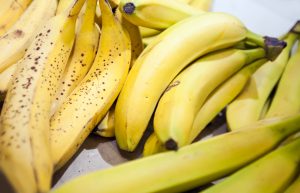 Ischemic colitis is a condition characterized by a reduced blood flow to the colon. One of the main contributors to ischemic colitis is atherosclerosis, which is the narrowing of the arteries due to plaque buildup on the inner walls. Limited blood flow to the colon means decreased supply of oxygen to the cells in the digestive system.
Ischemic colitis is a condition characterized by a reduced blood flow to the colon. One of the main contributors to ischemic colitis is atherosclerosis, which is the narrowing of the arteries due to plaque buildup on the inner walls. Limited blood flow to the colon means decreased supply of oxygen to the cells in the digestive system.
Sometimes mistaken for other digestive issues, ischemic colitis can heal on its own or turn into an infection, which can be prevented with medication. Surgery may be required if the colon gets damaged.
Advertisement
Natural remedies and diet can be effectively used to aid in ischemic colitis treatment.
Ischemic colitis diet: Foods to eat and avoid
The severity of ischemic colitis can often be controlled by the foods you eat as well as by avoiding foods that trigger symptoms. The frequency of meals also plays a role, as eating smaller meals more frequently may effectively manage ischemic colitis symptoms. The follow diet recommendations should be incorporated into your lifestyle to get the full benefit.
- Consume easily digestible foods, as it will help decrease the workload of the digestive system. It will also help give your digestive system time to heal in cases of inflammatory disorders. Some easily digestible foods include chicken, salmon, and bananas.
- Avoid foods that induce inflammation in the gut. This is especially important if you suffer from an inflammatory bowel condition such as Chrons or ulcerative colitis. Inflammatory foods may be spicy or acidic in nature. Instead, choose to eat whole grains, fresh fruit, and vegetables.
- Eat more bananas for their potassium content, as it helps to combat ischemic colitis symptoms. Bananas are also rich in fiber and vitamin C.
- Buttermilk is a great choice for people suffering from ischemic colitis. It is easily digested unlike whole milk and rich in potassium, calcium, and phosphorus. It also contains B vitamins, which promote digestive health.
- Applesauce is a great source of antioxidants like phlorizin, chlorogenic acid, and catechin, making it an ideal food for ischemic colitis patients.
- Watermelon is a good source of the amino acid citrulline, which helps to maintain proper blood circulation, helping to ensure your digestive tract has enough blood to operate efficiently.
- Other great food options for ischemic colitis include tofu, white fish, blueberries, coconut water, papayas, plums, gelatin, apple, porridge, honeydew, pear, rice, squash, yogurt, and wheatgrass juice.
- Doctors will often recommend avoiding the consumption alcohol, as it may exacerbate ischemic colitis symptoms. Caffeine should also be avoided as it may increase stomach acid.
Ischemic colitis treatment
 The type of treatment required depends on the severity of the ischemic colitis condition. Symptoms can subside within days, but your doctor may still prescribe medications as a preventative measure against an infection.
The type of treatment required depends on the severity of the ischemic colitis condition. Symptoms can subside within days, but your doctor may still prescribe medications as a preventative measure against an infection.
Treatment options for ischemic colitis include:
- Antibiotics
- IV fluids to prevent dehydration
- Treatment for underlying medical condition
- Avoiding medications that may constrict blood vessels (vasoconstrictors)
If the ischemic colitis is severe, surgery may be required in order to:
- Remove dead tissue
- Repair a hole in your colon
- Bypass blockage in an intestinal artery
- Remove part of the colon that has narrowed due to scarring, which is creating the blockage
Advertisement
Surgery is more likely in patients with heart disease or low blood pressure.
Ischemic colitis prevention
Preventing ischemic colitis is difficult as there are many factors that can contribute to its onset. Some prevention tips include:
- Exercising regularly
- Eating a healthy diet
- Treating heart conditions
- Controlling cholesterol and blood pressure
- Not smoking
Depending on the underlying condition causing your specific case of ischemic colitis, finding appropriate treatment may be difficult on your own. It is recommended to seek the aid of a trained medical professional, as they can help guide you through the most appropriate diet items, available medications, and various treatment options that are best suited for your unique case.
